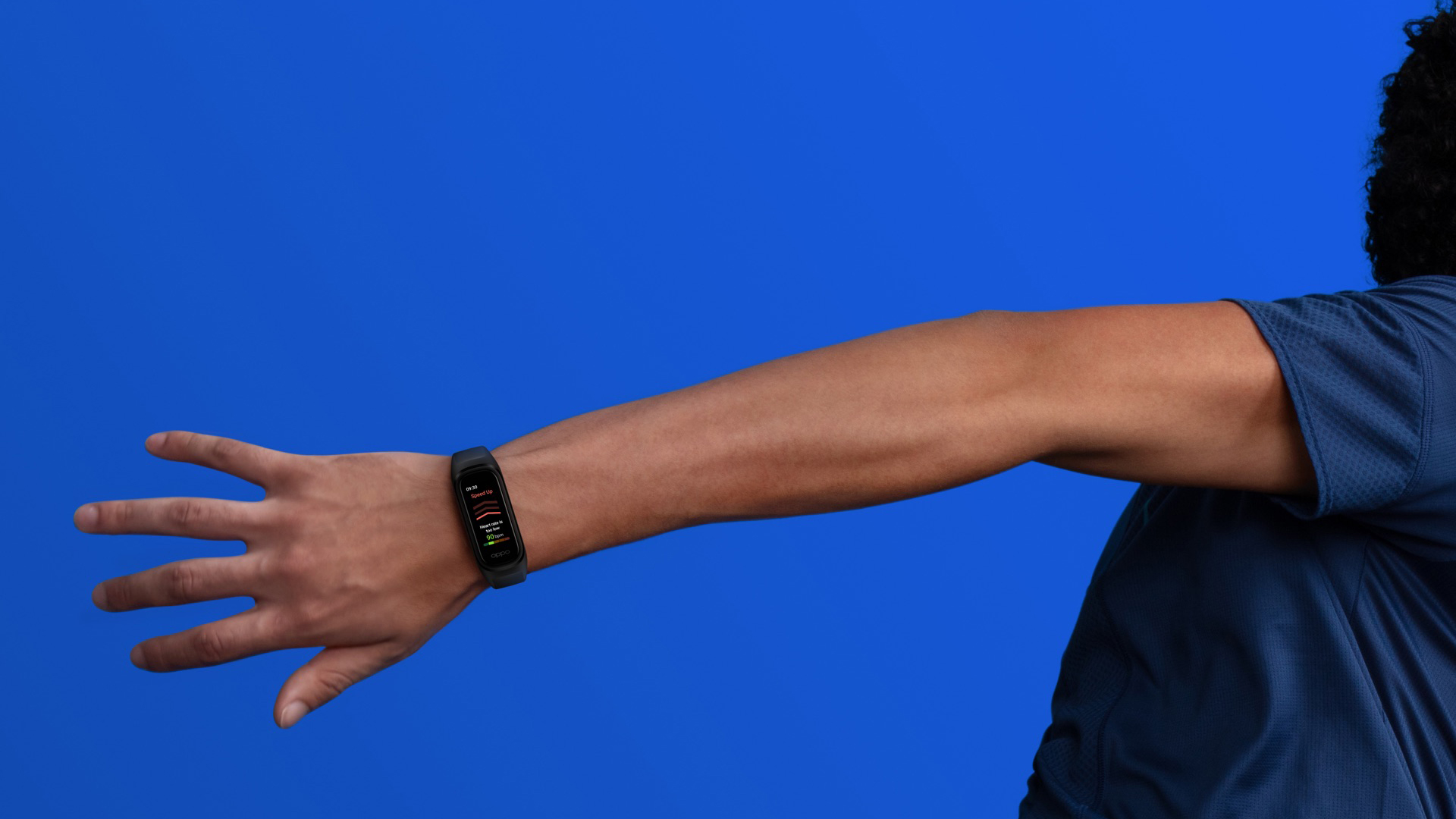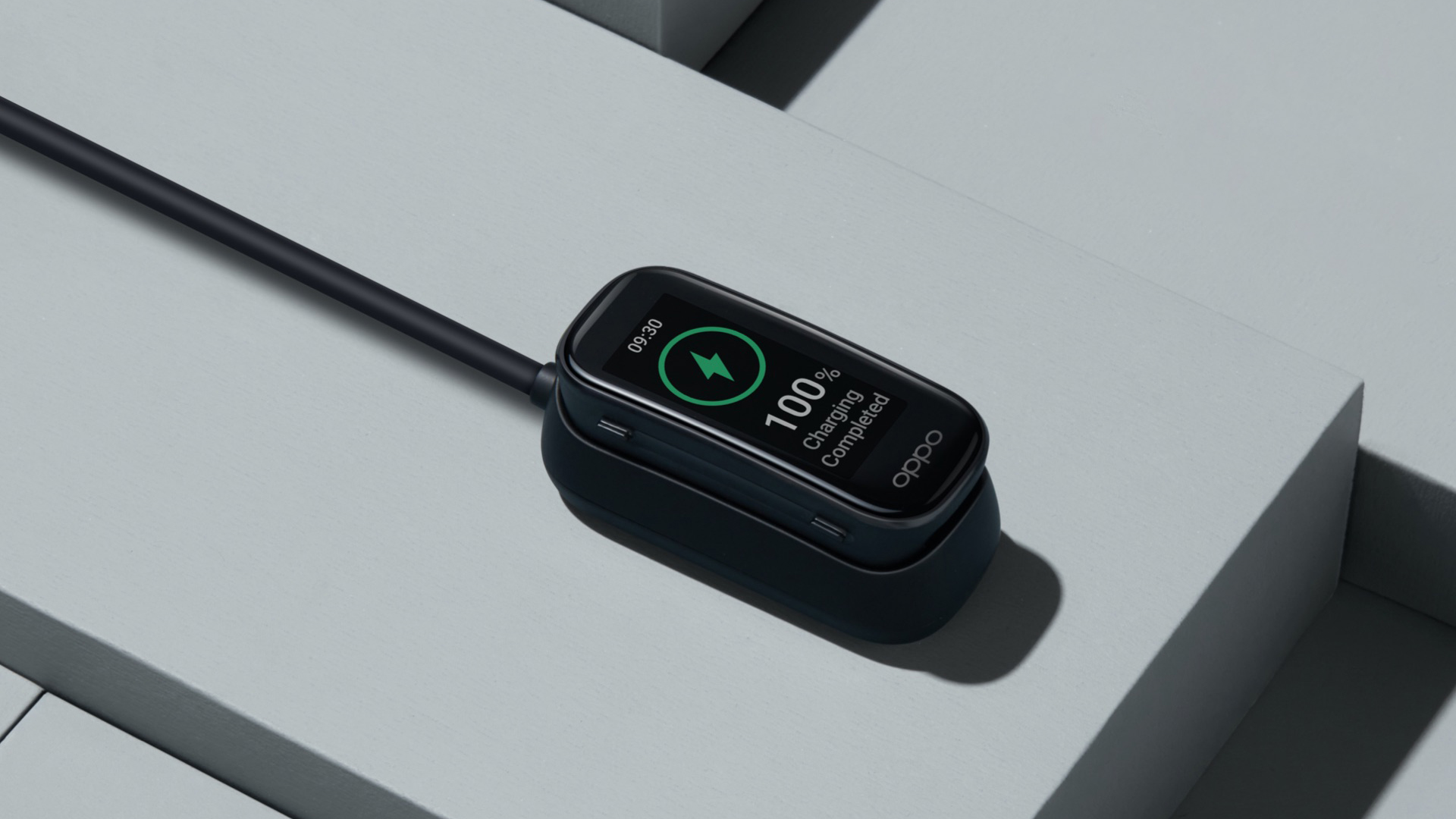Looking for a cheap Fitbit Charge 4 alternative? New £40 Oppo Band has an AMOLED screen and 12-days battery life
Oppo's "first wearable device designed to enhance and improve the fitness experience" is here and it's cheap as chips


Get all the latest news, reviews, deals and buying guides on gorgeous tech, home and active products from the T3 experts
You are now subscribed
Your newsletter sign-up was successful
Hot on the heels of the recently released Huawei Band 6, Oppo just announced its latest wearable launch in the UK, the Oppo Band, which is said to be the "brand’s first wearable device designed to enhance and improve the fitness experience." Essentially, the Oppo Band is a fitness tracker with a 1.1" AMOLED screen offering 12 workout modes, sleep tracking, SpO2 monitoring and more for an affordable price.
The Oppo Band is entering a highly competitive market dominated by the likes of Fitbit and Huawei, as well as a deluge of knock-off brands, the latter lot offering questionably-accurate features and sensors. The Oppo Band's price suggests it'll be positioned among the mid-range fitness trackers, well above the lower end of the scale (£10-15) but well below the Fitbit Charge 4s's asking price (£100).
The nearest competition of the Oppo Band is probably the Huawei Band 4 Pro, and although the Band 4 Pro has been released over a year ago, it does have built-in GPS, something the Oppo Band lacks. The Oppo Band's AMOLED screen is also slightly larger than the Band 4 Pro's (1.1" vs 0.95", respectively) and the Band 4 Pro is also slightly heavier than the Oppo Band.
Oppo Band: price and release date
The basic sport version of the OPPO Band is priced at £39.99, available at OPPO’s eStore and Amazon.
The Oppo Band won't be available in the US or Australia according to the manufacturer.

Oppo Band: features
The Oppo Band has a 1.1" full-colour AMOLED display with a resolution of 126 x 294 pixels, encased in a polycarbonate body and protected by a 2.5D glass at the top. There are two different version available: the Standard edition has a TPU band and aluminum alloy clasp while the Style version features a fluor rubber band with either an aluminum alloy clasp and stainless steel buckle. The fitness tracker weight little over 10 grams (without the strap).
The 100mAh battery can be charged from 0-100% in an hour and a half and the Oppo Band will last for 'up to' 12 days on one full charge: not bad. Sensor-wise, the tracker has a 3-axis acceleration sensor, optical heart rate sensor and an optical SpO2 sensor. The Oppo Band is water rated to 5 ATM.
Get all the latest news, reviews, deals and buying guides on gorgeous tech, home and active products from the T3 experts
The Oppo Band's health features are what you'd expect from a decent fitness tracker in 2021: continuous SpO2 monitoring, sleep monitoring, real-time heart rate monitoring, daily activity summary, get-up reminders and breathing exercise. Other, non-health related features include smart notifications, weather reports, music playback control and even camera control, although we aren't sure why would anyone hold the phone with one hand and use the Oppo Band on the other hand to control the camera but if that's what you want to do, by all means, you can. It might work well as a remote shutter, come to think of it.
There are 12 sport modes available on the Oppo Band: Outdoor Run, Indoor Run, Fat Burn Run, Outdoor Walk, Outdoor Cycling, Indoor Cycling, Elliptical, Rowing, Cricket, Badminton, Swimming and Yoga. We haven't got any information about whether there is a custom sport mode, although we doubt there is, given it's only a fitness tracker, not a full-blown running watch. We also wonder how does the 'Fat Burn Run' differ from other run modes.
The Oppo Band only seem to support Android 6.0 or higher operating systems, if the Band's spec sheet is anything to go by, and there is no information available about iOS support. The Oppo Band connects to smartphones via Bluetooth.

Matt Kollat is a journalist and content creator for T3.com and T3 Magazine, where he works as Active Editor. His areas of expertise include wearables, drones, action cameras, fitness equipment, nutrition and outdoor gear. He joined T3 in 2019.
His work has also appeared on TechRadar and Fit&Well, and he has collaborated with creators such as Garage Gym Reviews. Matt has served as a judge for multiple industry awards, including the ESSNAwards. When he isn’t running, cycling or testing new kit, he’s usually roaming the countryside with a camera or experimenting with new audio and video gear.